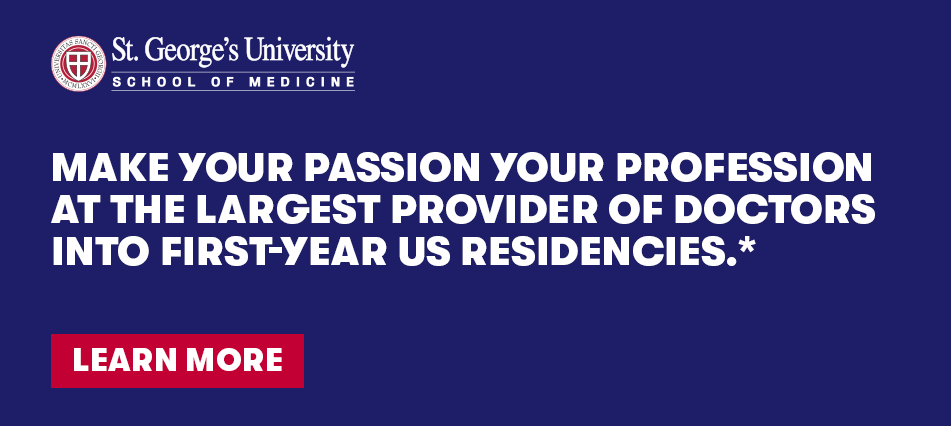Doctors are known for dealing with high-stress situations while working strenuous hours that can potentially include long evenings and even weekends in the event of an emergency or call schedule. Many take pride not only in what that perseverance says about their own character but also in how those struggles elevate their talents as a medical doctor.
Experienced MDs have seen how challenging situations can bring out the best of their abilities—and many agree that’s part of what keeps the job so interesting. As you contemplate the question, “Why become a doctor?” it can be helpful to consider how seasoned physicians knew it was the right career path for them.
Why did you become a doctor? Physicians share why they practice medicine
We gathered stories from doctors across the US about what drove them to pursue their calling in medicine. Their responses revealed what makes their daily work worth the effort. According to these MDs, there are plenty of reasons to become a doctor.
1. To save lives in unexpected emergencies
Those words feel incommensurate to the passion and drive most doctors and physicians have for their work. But for St. George’s University (SGU) graduate Dr. Moshe Karp, that is the simple truth behind his decision to pursue a career in emergency medicine: he wanted to be able to save lives.
And Dr. Karp was actually able to see that goal come to fruition before his medical schooling was even complete. In 2017, he was on a flight to New York City to begin clinical rotations after completing basic science studies at the SGU School of Medicine in Grenada. An hour or so into the flight, another passenger went into cardiac arrest.
Dr. Karp, with years of experience as an NYC paramedic, recognized the signs: the passenger was cool, pale, sweating heavily, experiencing agonal respirations, and had no pulse. The young medical student immediately began cardiopulmonary resuscitation (CPR) and assisted ventilation. Dr. Karp continued this for approximately eight minutes and ultimately brought the passenger back to an alert state with a strong pulse.
“To be able to help is very rewarding,” he says. “I had thought about going into family medicine because you develop close relationships with patients, but I think I thrive in emergency medicine.” The experience on the plane, Dr. Karp adds, taught him that emergency medicine may be where he’s needed most.
2. To empower patients to take control of their health
These days, medical information is only a click away for anyone with a smartphone or computer. As such, it’s easy for people to do a quick symptom check online and attempt to self-diagnose an ailment, bypassing professional medical consultations altogether.
While many medical professionals warn patients of the dangers of online self-diagnosis, some also see it as a sign that people are eager to be educated and empowered to take responsibility of their own health. “There’s so much opportunity now to help patients help themselves,” explains SGU alumna Dr. Barbara Bergin.

She believes the vast amount of information available to practitioners and their patients simply represents a new call-to-action. “I use handouts, draw pictures, and use my blog to teach patients about their conditions so that they better understand and can help themselves throughout the long haul of life,” Dr. Bergin says.
Ultimately, she believes her job as a doctor is not just to diagnose and treat as a response to what’s already happened. She’s also tasked with empowering people to be proactive about their wellbeing and help them gain control of their health. While it’s not always easy, Dr. Bergin wouldn’t have it any other way.
“Every day presents a new set of challenges, with each patient like a surprise behind the door to the exam room,” she offers. “Try to think of another career like that!”
3. To play a critical role in a growing field
When discussing the appeal of becoming a doctor, it’s easy to focus solely on the passion that drives those individuals. But the decade-long investment in education, the long hours working nights and weekends, and the stress of handling patients during times of duress can leave even passionate doctors wondering if the job itself is worth the investment.
As an attending anesthesiologist in private practice in Los Angeles, Dr. Edna Ma spends her career helping patients have safe and successful surgery experiences in the operating room. While she certainly can cite passion as a driving force in her practice, she also has a unique sense of pride in her specialized role.

“At the end of the day, I feel I have been a critical member of the health delivery team in a measurable way,” Dr. Ma says. She goes on to explain that anesthesiology is a very technical specialty. She takes part in procedures such as epidurals and spinals and places invasive monitors, including central lines, pulmonary artery catheters, and arterial lines.
Job security may not rank among many physicians’ primary reasons to become a doctor, but it does factor into the decision for some. “While there are other ways to earn a living, I feel medicine is a secure career path that can’t easily be automated or outsourced,” Dr. Ma explains. Being focused in a niche area has also given her confidence that she’ll enjoy long-term engagement in her field.
Reflect on your own reasons to become a doctor
Despite the undeniable challenges on the road to becoming a physician, there are distinct rewards to pursuing a career in medicine. Becoming a doctor means surrounding yourself with passionate, talented people who have committed their lives to a purpose that’s greater than themselves.
So, why do you want to become a doctor? As you can see, different people have different motivations. But as long as you remain persistent and passionate about reaching your goal, you can overcome whatever obstacles might be standing in your way.
For more stories about doctors living out their dreams and making a difference, check out our article “9 SGU Medical School Grads Who Are Improving Patients’ Lives Around the World.”
*This article was originally published in 2017. It has since been updated to include information relevant to 2022.


